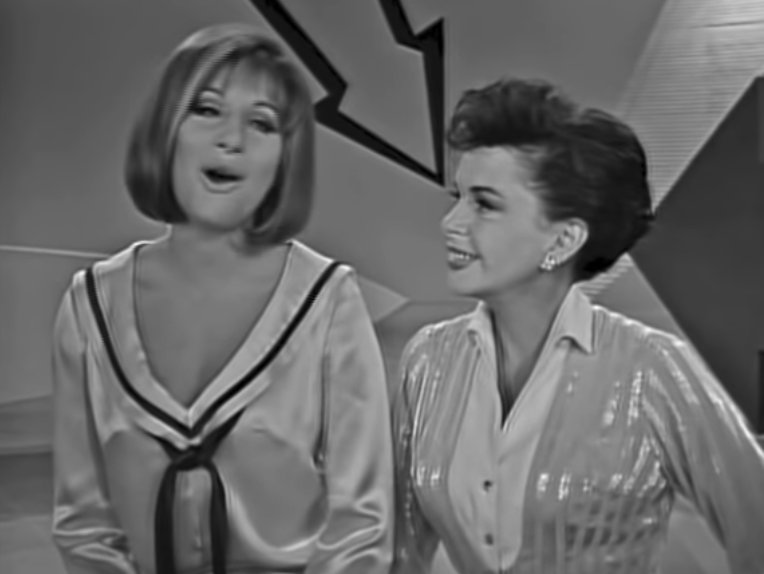How songs from musicals accompany me through my life
Today is the first of June, which always has me spontaneously singing ‘June is Bustin’ Out All Over’ to myself (though in fact we’ll have to wait until July to hear that in a theatre, when the Open Air Theatre in Regent’s Park revives Carousel, the show that Rodgers and Hammerstein’s song was actually written for).
If you can’t wait, however, treat yourself to this (in)famous version by Broadway star Leslie Uggams, where she entirely scrambles the lyrics, but this being live television, continues gamefully on.
I frequently live my life to the accompaniment of great show tunes: this year, as we entirely seemed to skip from winter to summer without the interval of spring, I found myself thinking of another R&H classic, It Might as Well Be Spring (sung wondrously here by Alexandra Silber):
The song comes from their 1945 film musical State Fair, in which a character yearningly sings of the characteristics of the season though they’re not actually in it:
“I’m as restless as a willow in a windstorm
I’m as jumpy as a puppet on a string
I’d say that I had Spring fever
But I know it isn’t Spring
I am starry-eyed and vaguely discontented
Like a nightingale without a song to sing
Oh, why should I have Spring fever
When it isn’t even Spring?”
Last week I wrote here of the particular poignance and personal relevance of Sondheim’s No More from Into the Woods, as a son confronts the legacy of his long-absent father, and tries to outrun it — but the father reappears and warns him
“Trouble is, son, the farther you run
The more you’ll feel undefined
For what you have left undone, and more
What you’ve left behind.”
“Farther” of course is also “Father”, and as I also wrote in another column accompanying my ShenTens podcast on my top ten favourite Sondheim songs, of which No More is naturally an entry, I said, “I’m no longer running away: a few months ago, I finally confronted this undone, previously unspoken business. And at last, with the utter clarity that has come from understanding the totality of my father’s rejection throughout my life, I’m no longer feeling undefined.”
Here, Chip Zien, Broadway’s original Baker’s son, performs it last year for Sondheim’s 90th birthday online celebration:
Sondheim, simply put, regularly manages to articulate just how I’m feeling in particular moments of my life, providing me with the words for my feelings. Like all great artists, he seems to be able to express the seemingly inexpressible. Is there a more painful song of a missed experience of seemingly true love than Too Many Mornings from Follies (1971)?
Too many mornings
Waking and pretending I reach for you,
Thousands of mornings
Dreaming of my girl.
All that time wasted,
Merely passing through,
Time I could have spent
So content
Wasting time with you.
Too many mornings
Wishing that the room might be filled with you.
Morning to morning,
Turning into days.
All the days that I thought would never end,
All the nights with another day to spend.
All those times I’d look up to see
Sally standing at the door
Sally moving to the bed,
Sally resting in my arms
With her head against my head.
Ben, who sings that song to Sally (the girl he didn’t marry), also perfectly articulates the impossible unknowns of the life choices we’ve made on the consequences for the lives we’ve actually led in The Road You Didn’t Take:
You take one road,
You try one door,
There isn’t time for any more.
One’s life consists of either/or.
One has regrets
Which one forgets,
And as the years go on.
The road you didn’t take
Hardly comes to mind,
Does it?
But more than a decade later, in Sunday in the Park with George (1984), Sondheim comes up with an answer to his own riddle in Move On, when Dot — who made her own choice for a baker over the artist George — sings to him,:
Stop worrying where you’re going
Move on
If you can know where you’re going
You’ve gone
Just keep moving onI chose, and my world was shaken
So what?
The choice may have been mistaken
The choosing was not
You have to move on
I’ve spent too many mornings (yes, that’s a Sondheim song, too) letting sad songs define my life for me. So I’m going to end with this column with two more affirmative songs that I also try to live by.
- From the 1963 film version of the 1960 Charles Strouse and Lee Adams scored musical Bye Bye Birdie: A Lot of Livin’ to Do:
- And finally, Harold Arlen and Ted Koehler’s Get Happy — first introduced in the Nine-Fifteen Revue in 1930, and long a standard, particularly thanks to Judy Garland for whom it became a signature song, here sung by with Barbra Streisand in a pairing with Happy Days are Here Again (by Milton Ager and Jack Yellen, first heard in the 1930 film Chasing Rainbows).

